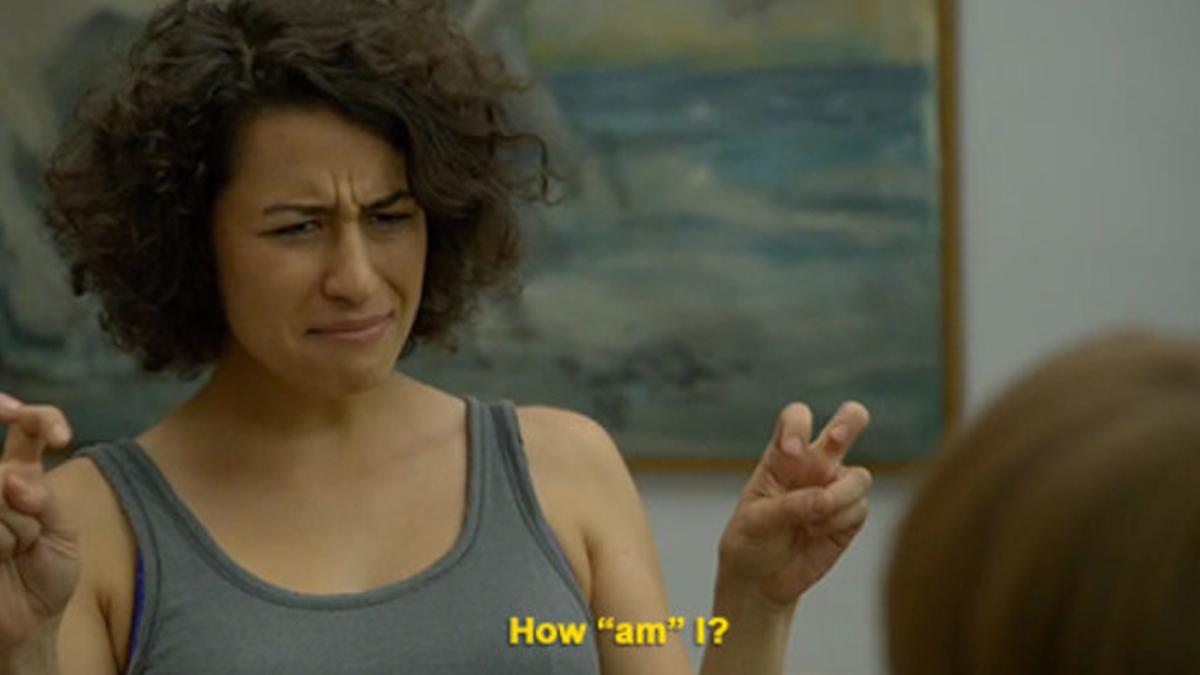
We all get nervous from time to time. It’s a normal and healthy part of life.
However, sometimes that particular feeling persists and spirals. It can feel like an ever-present, uncomfortable buzz or a cycle of worry that starts to overtake your life – this is referred to as anxiety.
Around one in four Aussies will suffer from an anxiety disorder in some form over their life, and it’s the second most common mental health disorder among young people aged four-17. The word ‘anxious’ gets thrown around a lot, and even though we’re aware of how common the disorder is, it can still be tricky to navigate and deal with.
To get some further insight into recognising anxiety and strategies that can be used to combat it, we spoke to Joss, Delilah and Isla , who are counsellors from Kids Helpline – here’s what they had to say.
What is anxiety, and what causes it?
According to the team at Kids Helpline, anxiety is a normal and natural human reaction. Anxiety is something we experience at some level every day. However, some people experience higher levels than others.
“Anxiety can be caused by several biological factors, including our genes, which are passed down to us through our family, influencing our physiology, brain function and personality. Environmental factors also can play a role. This relates to our experiences and surroundings, such as our location, housing, education, food and weather,” said Delilah.
They also added that experiences such as being bullied or going through a family separation if your parents’ divorce could contribute to someone developing an anxiety disorder.
What are some symptoms that we should all look out for in ourselves?
Anxiety can influence our thoughts, emotions, body sensations and behaviour, so there are various symptoms that present as a result of it. According to Joss, some common symptoms to look out for include feeling panicked, overwhelmed, racing thoughts, withdrawal, agitation, sweating and shortness of breath, as well as butterflies in your stomach.
According to Isla, other symptoms can include (but are not exclusive to):
- Fast heartbeat
- Sweating
- Racing thoughts
- Excessive worry
- Feeling jittery

What are some practical things we can all do to ease our anxiety?
The most important thing to remember if you’re struggling with anxiety is that you’re not alone.
“Seeking out support is that courageous part of you, going up against fear. Talk to someone about it. It’s very brave to reach out for help, and you matter,” said Joss.
There are also a variety of practical things you can do every day to ease anxiety. Joss recommends that doing the ‘opposite’ of whatever action is occurring in your body can be a powerful way to dull anxiety. For example:
- If you’re breathing too fast, try slow, deep breathing.
- If thoughts are rushing through your mind, try doing a gentle, mindful activity like colouring in or listening to calming music.
- If you’re feeling scared about ‘what if’ bad things happen, think ‘what if’ good things happen.
Isla said other helpful ways to ease anxiety include:
- Deep breathing.
- Gentle stretching.
- Drink a glass of water slowly.
- Ask yourself, ‘What is my anxiety trying to communicate to me?’
- Write a list of worries and one thing you can do to respond to them.
- Write about or draw your anxiety.
- Talk to someone.
When should you seek professional help with anxiety?
Kids Helpline recommends seeking professional help for anxiety whenever the things you need to do or want to do (everything from brushing your teeth to getting coffee with a friend) are affected by anxiety symptoms.
“The sooner you reach out, the easier it will be to manage anxiety. If anxiety affects your daily life in an ongoing way, then that’s definitely an important time to seek professional help,” Isla added.
Remember, anxiety is a normal part of being human. However, no one deserves to suffer in silence – especially when there is a multitude of help available. Kids Helpline is available 24/7 (for 5-25 year olds via WebChat, Email or Phone) to provide advice and support around all matters regarding mental health. It takes a lot of courage to make the first step, but once it’s initiated, you’ll be on your way to a healthier future.



